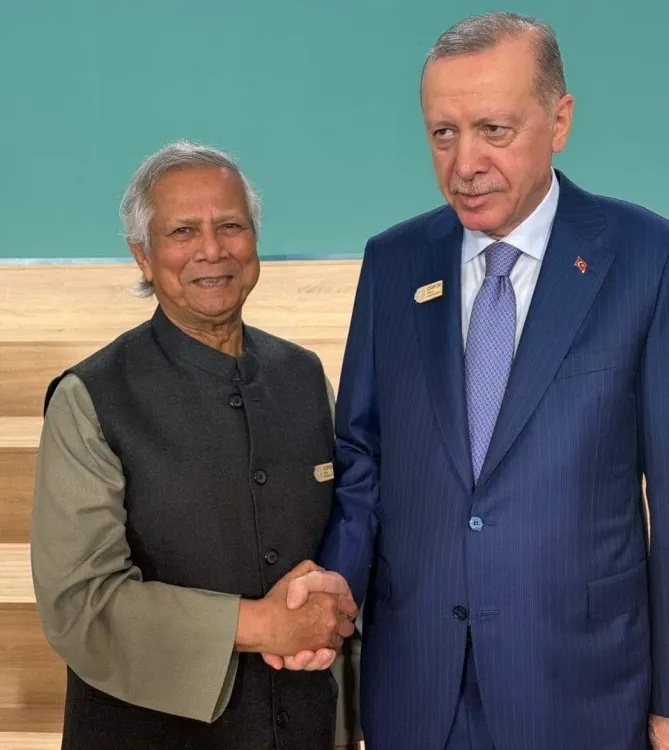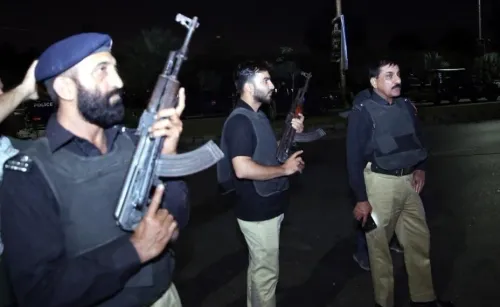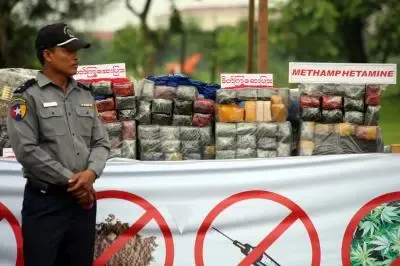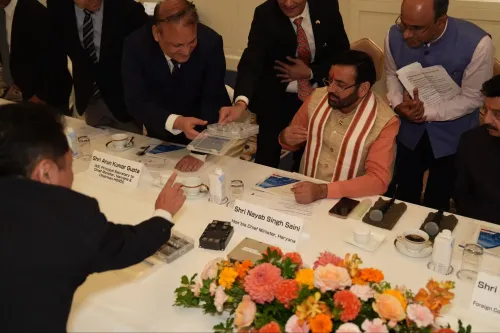Is Turkey Expanding Its Influence in Bangladesh Amid Political Changes?

Synopsis
Key Takeaways
- Turkey's influence in Bangladesh is growing following political changes.
- Strategic alliances with local Islamist parties may reshape regional dynamics.
- Defense collaborations between Turkey and Bangladesh are intensifying.
- The Jamaat-e-Islami's return to politics marks a shift in governance.
- India's security concerns may increase due to these developments.
Dhaka: The ousting of former Bangladesh Prime Minister Sheikh Hasina in August 2024 seems to have created an opportunity for Turkey's President Recep Tayyip Erdogan to further his Islamist agenda while ostensibly boosting trade and defense ties with Dhaka.
A strategic partnership is forming among Turkey, Pakistan's Inter-Services Intelligence (ISI), and Bangladesh's Jamaat-e-Islami (JeI), all aimed at undermining India. This trilateral collaboration is channeling funds, arms, and radical Islamic ideologies throughout South Asia, with Bangladesh serving as a vital hub for orchestrating anti-India initiatives. Recent events highlight Turkey's apparent support for Pakistan during India's Operation Sindoor, following the brutal Pahalgam terror attack on April 22.
Turkey's increasing involvement with Dhaka may signify a broader strategy to eradicate pluralism and escalate Islamism in the region.
Despite the restrictions imposed by the Hasina administration, the Jamaat has remained operational. In June, Bangladesh's Supreme Court reinstated Jamaat's registration, allowing it to participate in upcoming general elections. This re-entry into the political sphere signifies a significant departure from Dhaka's previous 'zero tolerance' stance against religious extremism, a policy that had previously benefited New Delhi by cracking down on insurgent groups operating from Bangladeshi territory.
Since 2010, Turkey's ruling Justice and Development Party (AKP) has been supporting the global Muslim Brotherhood network, including its activities in Bangladesh through JeI.
Turkish intelligence agencies are reportedly providing financial and logistical backing to Islamist groups in Bangladesh, particularly JeI. Last month, Yasin Aktay, a former Turkish parliamentary member and Erdogan's advisor, visited JeI Ameer Shafiqur Rahman at the party's central office in Dhaka.
Reports suggest that the renovation of JeI's office was funded by Turkey's National Intelligence Organisation (MIT), which collaborates closely with Turkish diplomatic missions. Ankara's strategic engagement with South Asia indicates a growing interest in the region's defense and geopolitical dynamics. Under Erdogan, Turkey maintains a partnership with Pakistan and Bangladesh while posing a challenge to India, aspiring for a more significant role in South Asia.
Over time, Erdogan has shifted towards a political Islamist ideology, moving away from liberal democratic principles. In the context of regional conflicts, Turkey's relationship with Pakistan remains particularly privileged. Ankara's approach to South Asia has become a 'State Policy', supported by various branches of its government, military, media, and public.
As Bangladesh prepares for general elections next year, Turkish and Pakistani intelligence agencies appear poised to exploit the country's political instability to influence the electoral outcome and foster an anti-India regime in Bangladesh.
Progress in defense collaboration between Dhaka and Ankara is evident. A nine-member Turkish delegation led by Haluk Gorgun, head of Turkish Defense Industries Savunma Sanayii Baskani (SSB), visited Dhaka on July 8-9, meeting with Bangladeshi military officials to discuss defense cooperation, procurement of advanced defense equipment, and technology transfer. Gorgun also met with Yunus to offer Turkey's assistance in establishing two defense industry complexes in Chittagong and Narayanganj.
Bangladesh has sought concessional credit lines and soft loans for importing Turkey's Bayraktar TB-2 UAVs, TRG-300 Rocket systems, and Otokar Cobra-II Mine Resistant vehicles. Gorgun's visit aimed to fortify strategic partnerships and enhance Bangladesh's defense capabilities through foreign investments.
In May-June 2025, Bangladesh Investment Development Authority (BIDA) Chairman Chowdhury Ashik Mahmud Bin Harun visited Turkey to discuss the establishment of two dedicated defense industrial clusters. His proposals included co-production initiatives, technology transfer, tax incentives, and operational flexibility during his visit to Turkish state-owned corporations.
Discussions encompassed the procurement of Bayraktar drones, local production of artillery shells, and the assembly of National Infantry Rifles (MPT)-76 and Platform Machine Guns.
In July, the Chief of Bangladesh Air Force and Chief of Naval Staff attended the 17th International Defense Industry Fair in Istanbul.
Simultaneously, Dhaka is pursuing a Counter-Unmanned Aerial Vehicle (C-UAV) system from Bay Galata International to protect Saint Martin Island from unmanned aerial threats.
Earlier this year, Turkey's Trade Minister Omer Bolat led a delegation to Dhaka to discuss technology transfer and investments in various sectors, including defense. Foreign Affairs Advisor Touhid Hossain also visited Turkey to engage with Turkish Aerospace executives, emphasizing the need for reliable aerospace partnerships.
Bangladesh's defense contracts and trade relations with Turkey are intensifying under the Yunus-led interim administration, positioning Bangladesh as the fourth-largest market for Turkish defense products, including drones and related technologies.
(The author is an expert on South Asia and Eurasia, formerly associated with Manohar Parrikar Institute for Defence Studies and Analyses. The views expressed are personal.)








